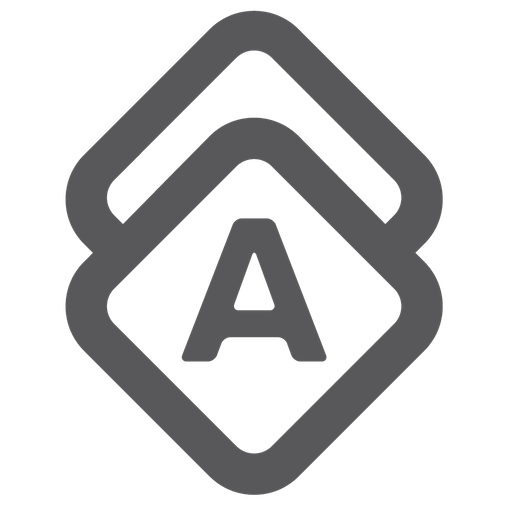
 |
Hannah Cole is a tax expert who specializes in working with creative businesses and artists. She is also a working artist and a tax and money columnist for Hyperallergic.Hannah is the founder of Sunlight Tax, which specializes in empowering creative people to set up for long-term success and take control of the financial side of their careers through her year-long artist-centric membership, Money Bootcamp. If you’d like to get a free visual guide to artists’ tax deductions and a 3-day Money Challenge, you can find that here. |
Have you started planning for your 2022 tax filing?
If you haven't quite yet gotten a handle on your taxes, or are already thinking of putting them off until April, we are here to help.
Hannah Cole, tax pro, artist, and founder of Sunlight Tax, has tips specifically for artists on how to feel more confident about filing taxes and planning for your financial future.
Here are seven things you can do to make the process of planning for your taxes a little easier.
1. Be gentle with yourself.
Taxes aren't exciting for anyone. They also induce stress for a lot of artists. If you do one thing on this list that you have never done before, you can feel proud.
But, if this is all new for you, and you haven’t set up your books yet, remember that this checklist works at the end of every year—and you can make progress each year.
Take what you currently can from these suggestions, and a year from now, see if you can do more of this full list.
2. Most important: Do your bookkeeping this month
Year-end planning hinges on knowing how much profit you made in your business, so you need up-to-date books.
Make sure you’re tracking every deduction. Some of them get tracked outside your bookkeeping, so knowing those rules helps: Here is a one-page printable Visual Guide to your Freelance/Solopreneur Tax Deductions
You can also track your income, sales, and expenses in Artwork Archive and quickly export them to the tax software of your choosing.
3. Evaluate your profit after getting your books up-to-date
You can adjust your net salary by deferring income to after January where possible and accelerating business expenses (only ones you would make anyway! This doesn’t mean buying things you wouldn’t normally) to before December 31st.
-
Prepare charitable donations and planned giving. This only applies to your taxes if you itemize (meaning you have over $12,950 in mortgage interest, state and local tax plus charitable contributions if single, or $25,900 married. Only 10% of the US population itemizes).
-
Do not confuse itemizing with taking your business expenses. You always get to take business expenses. You can learn more about business expenses here.
-
Plan for your fourth quarter estimated tax payment (the deadline is 1/15).
4. Reduce your taxable income:
There are a few more ways that you can reduce your taxable income as an artist.
-
-
Review your HSA options. If you have a health savings account (HSA), review how much is in it and evaluate your needs for next year. HSAs do roll over year to year, but you need an HSA-eligible high-deductible health plan (HDHP) to qualify for one.
-
The 2022 limit for HSA contributions is $3,650—and for a family, it is $7,300. The catch-up contribution limit for those over age 55 remains at $1,000
-
-
Contribute the maximum amount that you can to your retirement accounts. Make sure you're budgeting to make the maximum contribution to your Traditional or ROTH IRA, SEP IRA or solo 401k.
-
The training Save Like a Millionaire: An Artist’s Guide to Tax Shelters inside Money Bootcamp goes into depth on using these accounts.
-
5. What to do if you or your spouse has employee income
-
If you can, max out your company retirement plan contributions (401k or 403b) for you and/or your spouse if one of you has an employee account. The 2022 limit is $20,500, and 12/31 is your deadline to put money in.
-
Check your flexible spending account (FSA) balance, and use it if you have it (need new eyeglasses or contacts? Dental work?). FSAs don’t roll over to the next year.
6. Plan for the next few months of saving and spending
-
Review your health insurance at work or on the marketplace. November is open enrollment period.
-
On April 15th, you will need a big chunk of cash, so plan now. You have 4-5 months until then, so plan how much money you should set aside each month to pay.
7. Here is what you should plan for saving for:
-
Your first estimated quarterly tax bill (calculate ¼ of your annual tax)
-
Fully funding your IRA ($6000 is the 2022 limit, or $7000 if you’re over 50)
-
Add these numbers together and divide by the number of months you have—that’s your monthly savings goal.
Want to learn more about how to file taxes as an independent artist?
Join Artwork Archive and Hannah Cole on Feb 7, 2023 at 3pm EST for a live, free presentation on taxes for artists.
Save your seat for a two-hour session for artists to learn how to prepare their taxes and understand how to file, in an easy and jargon-free webinar.
This free webinar will help you answer the following questions:
What can I deduct?
Do I bring receipts to my accountant?
Is my art a business or a hobby?
What is a Schedule C?
How do I deduct my home studio?
Why do freelancers have to pay taxes quarterly, and how do I do that?
Hannah Cole will join Artwork Archive to discuss the basic tax equation, self-employment tax and the estimated quarterly tax system, audit concerns for the creative person, and other tax issues specifically relevant to artists and makers, followed by a question and answer period.
This 2-hour workshop is an empowering, jargon-free session that will cover a high-level understanding of key tax concepts, including:
• The basic tax equation
• Self-employment issues
• The estimated quarterly tax system, and how to pay quarterly taxes
• The Schedule C — what it is, who it’s for, and how to use it
• Arts-specific tax concerns, with a focus on artist empowerment:
The artist stereotype and how it plays into an audit situation
• What people can do to be prepared and counteract it
• What to do/keep/save in case of audit
• The Hobby/Loss Rule and surrounding case law, which is the basis of most artist audits
• General guidelines for good record keeping
• The importance of running one’s creative enterprise as a business
• Understanding the special requirements for meals expenses and home studio/office deduction






